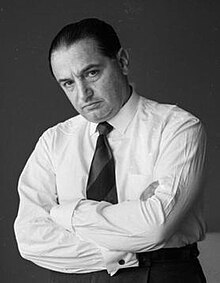Quito (Ecuador), 1906 – 1978
By Flávio Aguiar
 He stood out among the writers of the Generation of 1930 and was responsible for the innovation of Ecuadorian prose and poetry from both a formal and thematic perspective, similar to how the brothers Arturo and Alejandro Peralta aesthetically recreated indigenism in Peru. In 1933, he published El dictador, a critical drama that provoked censorship by the authorities. From then on, the diplomat dedicated himself to literature, and in 1934, he published Huasipungo, a novel that not only established him as a representative of indigenism but also broke away from previous romanticism.
He stood out among the writers of the Generation of 1930 and was responsible for the innovation of Ecuadorian prose and poetry from both a formal and thematic perspective, similar to how the brothers Arturo and Alejandro Peralta aesthetically recreated indigenism in Peru. In 1933, he published El dictador, a critical drama that provoked censorship by the authorities. From then on, the diplomat dedicated himself to literature, and in 1934, he published Huasipungo, a novel that not only established him as a representative of indigenism but also broke away from previous romanticism.
Instead of idealizing the native population or imitating Spanish models like many of his contemporaries, he formulated a non-manichean view of reality and incorporated indigenous lexicon into the literary realm. He was a precursor of the social realism of writers like the political activist Manuel Scorza, exposed social problems, publicized the violence that marked the encounter between the conquerors and the colonized, and criticized the middle classes formed by mestizos. Another work: El chulla Romero y Flores (1958).
Content updated on 03/04/2017 at 14:06.


